The blog for all things Apochromatik.
Farther, Faster…

University of Chicago Career Webinar...TODAY! | VOTW 111219
Does the thought of answering the question “where do you see yourself in five years?” in a job interview make you want to melt into the floor?

Leslie Knope Likes Masterminds*
*OK, so maybe I’ve never had a direct conversation with TV character Leslie Knope of “Parks and Recreation." Or with Amy Poehler. But I’m pretty sure if I could, they’d both be in favor of masterminds. And, as we know, waffles.

You are More than a Worm
Have you ever heard the expression, “to a worm in horseradish, the world is horseradish”?
If you haven’t, it may take a minute to process. (My first reaction was “why would a worm be in horseradish? Is it like having a worm in tequila?”) Another way to think about it is that when you’re in the thick of a situation – whether temporary or long-term – it can be impossible to see more than what is immediately in front of you. That can be a reasonable perspective; if a bear is charging you, it’s a huge asset to be able to focus on getting out of the way without being distracted by thoughts of a long-term crisis. But putting your head down and focusing on the things right around you it is not a good long-term strategy.

Future in Focus 2020 and Hustle & Flow | VOTW 101519
For this week’s Video of the Week, check out the newest episode of the Hustle & Flow podcast with Heather Hubbard. Heather interviews Apcohromatik’s Keith R. Sbiral and Amy M. Gardner. The trio discussed a range of topics, including Apochromatik’s Future in Focus 2020 Masterminds, specifically the two cohorts for attorneys who want to succeed as a partner or change jobs/careers.
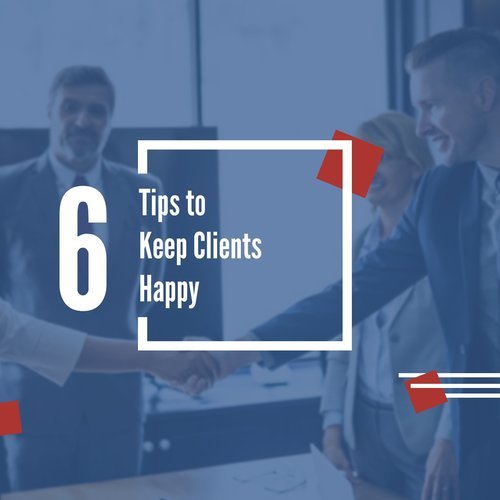
6 Tips to Keep Clients Happy
Landing clients is one thing. Keeping them happy is another. Last week we addressed what to do when you’ve disappointed a client. This week, we’re sharing six tips to help you keep clients happy in the first place.Here are seven tips to turn around a disappointed client, and to make sure even those who leave say good things about you.

7 Tips to Turn Around a Disappointed Client
Whether you’re an accountant, attorney, bus driver, business owner, or teacher, you have clients. Next week we’ll focus on how to keep those clients happy. At some point, though, no matter how hard you try, you will inevitably disappoint and even lose clients, whether for a reason you can agree with (maybe they need a service you can’t provide) or one you can’t (they aren’t happy with the services you’ve provided). How you treat disappointed clients not only reflects on you and your business, but also can impact whether they come back and what they say about you to others.
Here are seven tips to turn around a disappointed client, and to make sure even those who leave say good things about you.

Live Webinar This Thursday | VOTW 100119
This week’s Video of the Week is a live webinar this Thursday.
Join Apochromatik’s Amy M. Gardner for a free webinar on how to effectively give feedback the recipient needs to hear.
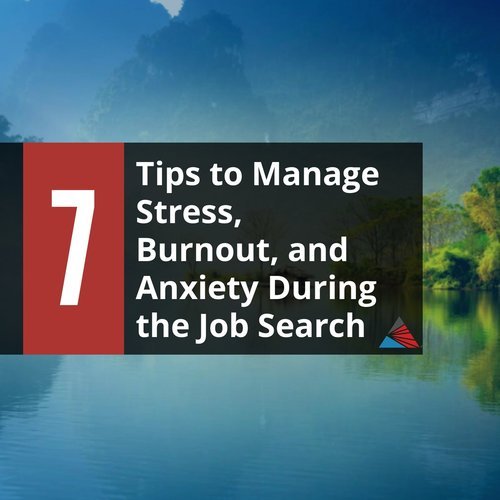
7 Strategies to Manage Stress, Burnout, and Anxiety During the Job Search
“Kate” has it all together. We’ve worked to ensure her resume is excellent. Her cover letters are customized and strong. She is focused in her job search. She knows that networking is (usually) where the jobs are, and has worked to build an engaged and supportive network.
But . . . she’s at that point where she’s waiting to receive an offer for a job, waiting on another interview that needed to be rescheduled, waiting for a couple of key people in her network to come back from vacation and make introductions. And she’s hit a wall. She is tired from the stress of job interviews, networking, tired of working to find her next job at the same time she’s working ridiculous hours at the current job, tired of also doing her share at home, anxious about how much longer she’ll have to continue enduring this process. . . .

How to Excel at an Initial Interview: 5 Tips Learned Eavesdropping at Starbucks
“It’s just a conversation at Starbucks to make sure they want to call me back.”
“It’s a pretty low bar. As long as I come across as normal, I’ll advance to the next phase.”
“It’s at Starbucks. It’s just an initial interview.”
Do any of these sound familiar? Recently I’ve observed several initial interviews in various coffee shops where it seemed clear that the job candidates had those thoughts before the interviews. And afterwards, based on their performances, I am confident they each regretted that approach.
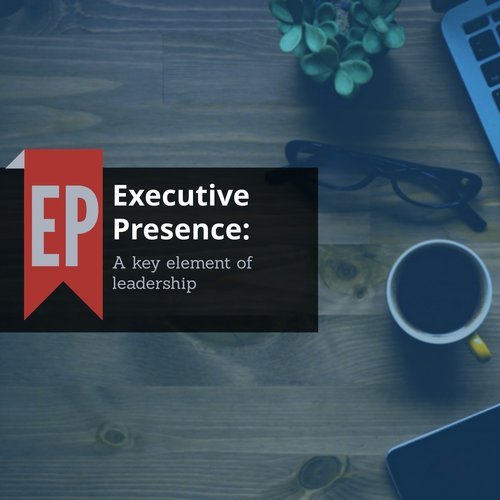
Executive Presence: A key element of leadership
When you think of leadership skills, executive presence may not be the first thing that comes to mind.

Stop Giving 110%
Stop Giving 110%.
Picture it: 1993. Whitney Houston’s “I Will Always Love You” is the song that proms are made of, and I’m interviewing for a college scholarship in my best dress from the pages of Seventeenmagazine with my hair freshly permed at Great Clips. My high school guidance counselor is one of the interviewers.
He asks, “What is your best quality?”
I proudly respond, “I give everything 110%.”

The Un-Video Video of the Week | VOTW 061819
This week the Video of the Week is . . .not a video! Instead, we’re featuring a recent episode of the Becker Group Women’s Leadership 15 Minute Podcast. Amy M. Gardner is the guest, and they covered Amy’s path from Luther College to the University of Chicago Law School, and from law firm partner to dean of students to coaching and consulting for lawyers and their employers; goal setting; staying motivated; starting your own business; and more. Please check it out, and be sure to subscribe.
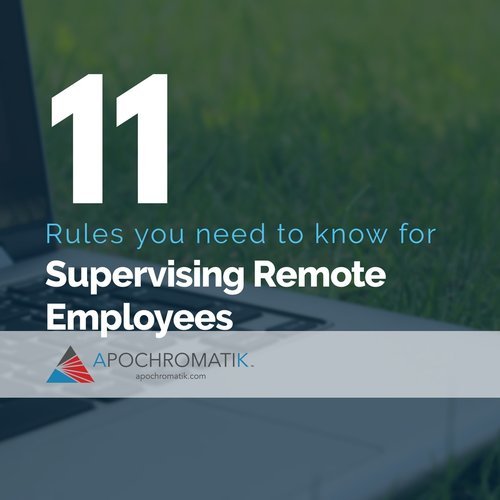
11 Rules for Supervising Remote Employees
Last week we shared 11 Rules You Need to Know for Working Remotely [add link], whether occasionally or full-time. As we noted, 70% of workers around the world are remote at least one day per week, and more than 50% work remotely at least half of the time. That means that more and more managers now supervise people working remotely. Whether you supervise employees who work remotely once in a while or people who are hired specifically to work remotely every day, the task requires different considerations – and often being more intentional – than supervising people you see every day. As I shared last week, I’ve worked remotely full-time for about four years in various environments, remotely 10-30% of the time for about eight years, and have been location-independent for the last year. Having been supervised by staff both in a physical office and who were also remote, and having supervised employees who were always or partially remote, I’ve seen it all in terms of what to do . . . and what not to do. Here are 11 rules to make managing remote employees better for everyone.
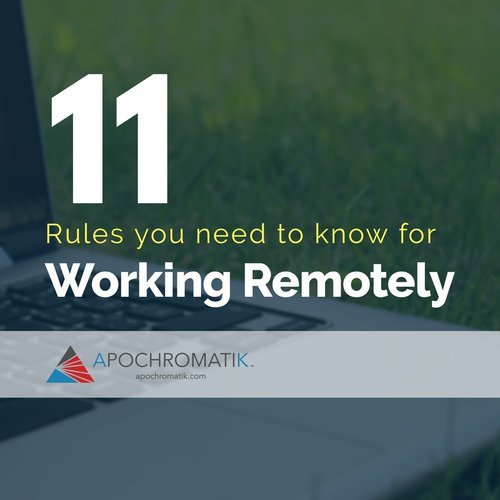
11 Rules You Need to Know for Working Remotely
With summer approaching, the ability to work remotely can loom as the Holy Grail of benefits, making possible shorter days (minus the commute), focused attention on long-delayed projects, longer vacations thanks to the ability to work while the family relaxes, and lower childcare costs. As we work with our career transition clients, the ability to work remotely – whether occasionally or regularly – is one of the items must often on their wish lists, whether as a proxy for a flexible workplace, or as a critical component to make their lives work. This isn’t a unique desire; 70% of workers around the world are remote at least one day per week, and more than 50% work remotely at least half of the time.

8 Tips to Fit More Reading into Your Schedule
There are plenty of reasons reading more is important for professionals, from improving brain functions to keeping up on trends and developments in your industry, giving you something to talk about and think about outside work and family, to just feeling like you are using your brain. But when was the last time you sat down with a novel or any other book you didn’t have to read for work? In fact, 31% of Americans report that they have read just 1-5 books in the last year.

How to Improve Your Executive Presence Quickly and Easily
When you think of executive presence, what comes to mind? Is it looking rested and like you just came back from a vacation? Having just the right outfit for every event? Having a booming voice that enables the speaker to be heard over chaos? After decades of working with leaders throughout my career, I can tell you that you don’t need self-tanner, a personal shopper, or elocution lessons to have executive presence. (In fact, being inauthentic can actually hurt, rather than help, the cause.)

Highly Effective References
Many job seekers put together a thoughtful job search plan, prepare their resume and cover letter carefully, and agonize over their interview attire, but when it comes to their references, they just type up some names, phone numbers, and email addresses and call it done. The good news: because so many people just throw their reference list together, this is an area where it’s easy to stand out.

Serve Your Network a Little ICE: 3 Ways to Serve Your Network
Building your network is an obvious and important step to build your career. So important that we’ve written before about three common networking mistakes you can avoid, how holiday parties can help you expand your network, and our four part series on building a network from scratch in 15 minutes per week. Once you’ve built your network, though, then what?
Herminia Ibarra, in her book Act Like a Leader, Think Like a Leader, states, “…just because a person knows that a network is important to her success, it doesn’t mean she is devoting sufficient time and energy to making it useful and strong.”

How to Travel for Work Without Derailing Your Life
“Business travel.” Two words that can spur thoughts of luxurious hotels, interesting cities, and free meals. Or, for those who do a lot of business travel, those words can prompt thoughts of suspicious stains in hotel rooms with thin walls next to the ice machine, repetitive conference rooms, and surviving on Southwest pretzels and granola bars eaten while jogging through airports.
